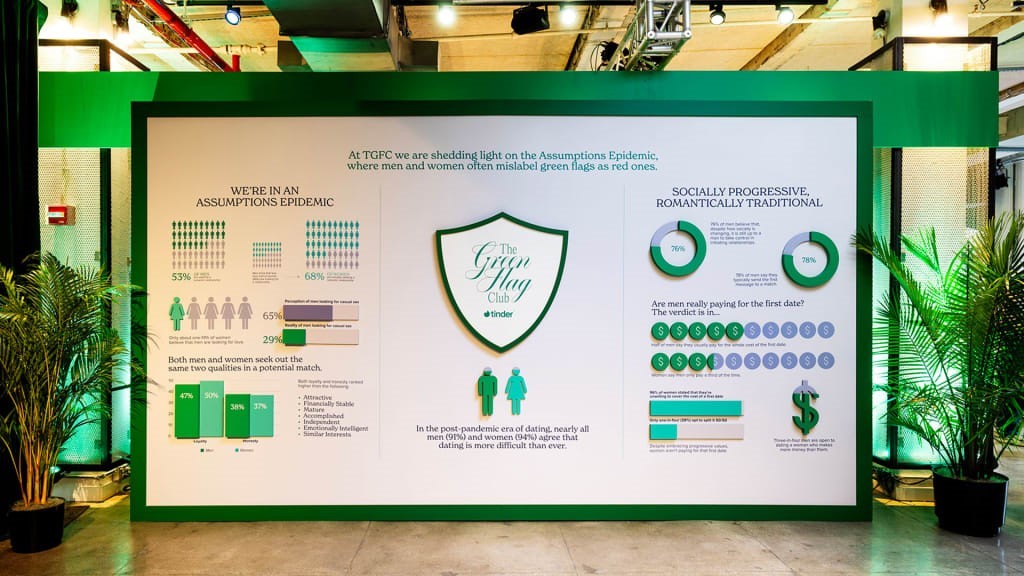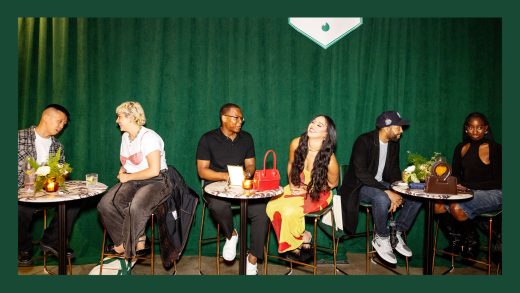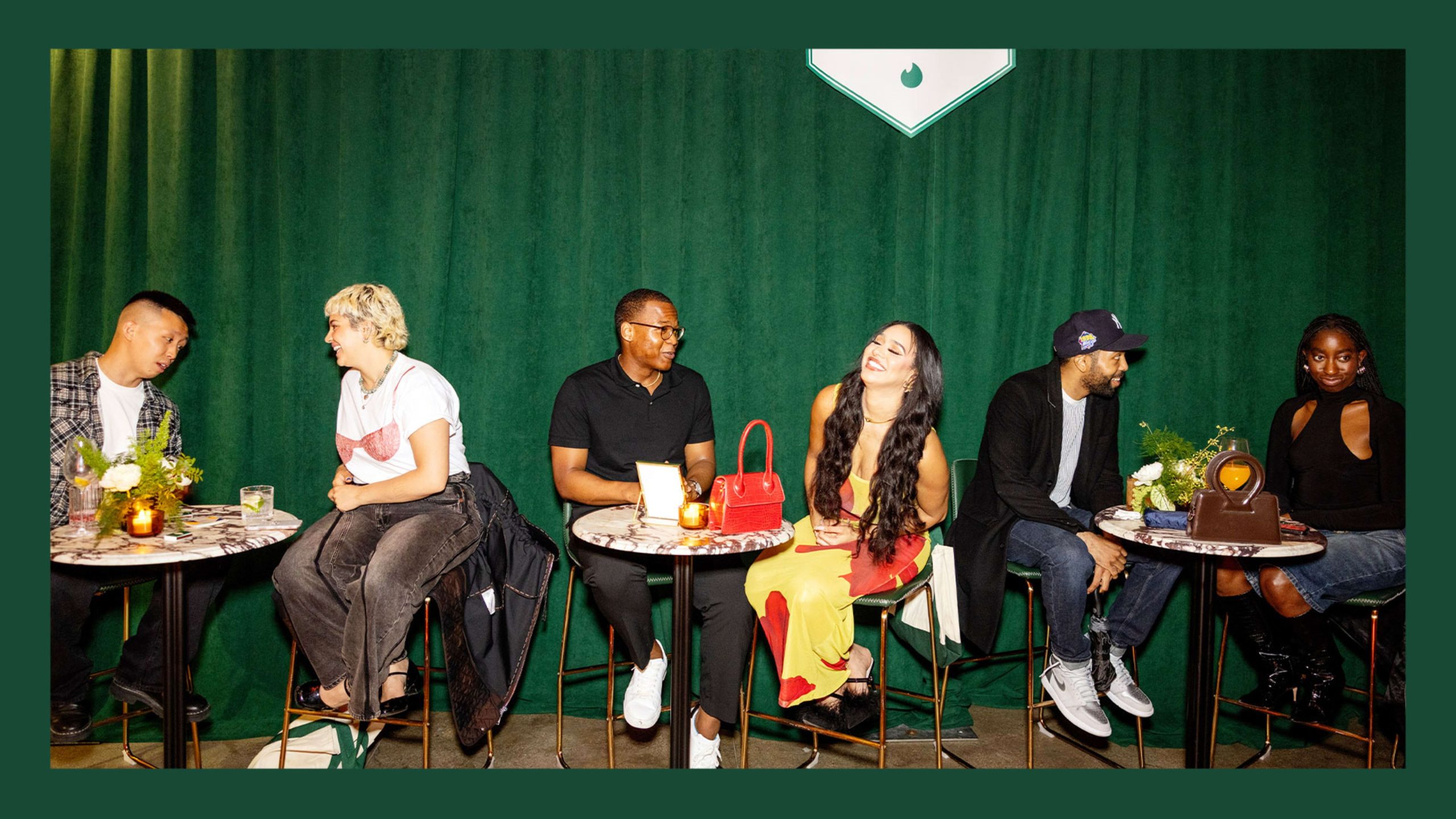Tinder is rebranding away from hookup culture—but will it be enough to lure Gen Z back in?
Tinder is rebranding away from hookup culture—but will it be enough to lure Gen Z back in?
The company is countering a decline in dating-app usage by encouraging long-term relationships, starting with its ‘green flags’ study.
BY Claire Zhao
Forget the pandemic. Tinder thinks we’re stuck in what it calls “an assumptions epidemic.”
The world’s most popular dating app recently released its Green Flags Study, analyzing heterosexual-dating-app behaviors in 2024. The survey polled 8,000 heterosexual men and women across four English-speaking countries—the United States, United Kingdom, Australia, and Canada—to try to figure out why dating has become so difficult at a time when apps like Tinder mean we’re more connected to each other than ever. The key finding? We’re increasingly inhibited by our own assumptions.
Unsurprisingly, the study revealed that 91% of men and 94% of women are finding dating more difficult. With countless rom-coms accessible at the tip of our fingers, it’s easy to despair at the lack of meet-cutes in our own daily lives.
Yet, Tinder suggests that long-term romance is not dead. Although 65% of women said they believe that men are only seeking casual flings, the survey revealed that this only made up 29% of responding men, with 53% responding that they were seeking a romantic relationship.
This study comes at a time when dating apps are losing their luster among younger generations. According to a Generation Lab survey, of 978 college students, 79% of respondents reported not using dating apps regularly, preferring instead to meet in real life; and 71% of respondents reported that they have not participated in hookup culture within the past year or longer. Tinder, as the “hookup dating app,” has particularly taken the hit, with its direct revenue dropping 5% from $509 million in Q3 of 2023 to $482 million in Q1 of 2024. Tinder payers also declined 9% over the past year.

In light of this trend, Tinder seems to be attempting a rebrand that prioritizes meaningful, long-term connections that facilitate in-person interactions. Over the past year, Tinder has made changes to its community guidelines and moderation practices “to improve the quality of its ecosystem,” removing users who “are not on the app for its intended purpose.” To improve trust in the app, Tinder also recently launched a “share my date” feature and will begin requiring face photos later in the summer.
In order to overcome accusations that it facilitates instant online gratification, Tinder has also added a feature where users can state if they prefer to communicate in person. Because as Leyla Guilany-Lyard, Tinder’s global head of communications says, “We don’t want people to stay hours on our app.”
ABOUT THE AUTHOR
(9)



